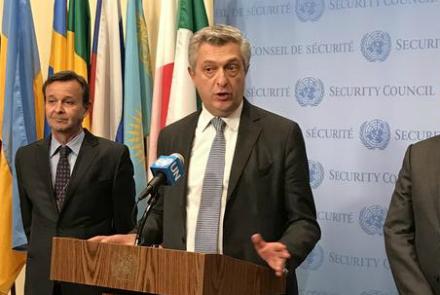The United Nations High Commissioner for Refugees Filippo Grandi on Thursday called on the UN Security Council to ensure the safety of Rohingya Muslims and support their rights.
He said that a lack of international cooperation has meant the number of forcibly displaced persons worldwide is approaching 66 million – up from 42 million in 2009 when his predecessor last addressed the council.
The commissioner opened his speech by recounting he was in Bangladesh on the Burmese border several weeks ago, which he described as the “most rapid refugee exodus” since the mid-1990s and a “stark illustration” of the failure to address root causes of conflict.
Failure by the Council to prevent conflict and provide sustainable peace has created “human tragedy at a dramatic scale,” he said.
More than 607,000 refugees have fled Burma into Cox’s Bazar in neighboring Bangladesh since Aug 25, when Rohingya militants launched attacks on Burmese security forces sparking so-called “clearing operations” across the Rakhine.
Burma’s Tatmadaw army has now been accused of arson, extrajudicial killings and rape.
On Thursday, Grandi praised refugee-hosting states “particularly those neighboring conflict zones” like Bangladesh for keeping their borders open and “generously hosting refugees”. Some 800,000 refugees from Burma are now residing in the impoverished South Asian nation.
“But certain states – often those least impacted by refugee flows, and often wealthy ones – have closed borders, restricting access to asylum and deterring entry,” he added, following comments last month where he criticised Europe, the US and Australia for having particularly unwelcoming asylum policies.
In Burma, the UNHCR has called for return of Rohingya refugees to their homes, with Grandi asserting that security, “establishment of respect for human rights” and progress on granting the stateless Muslim minority citizenship were “essential pre-requisites” before this could happen.


